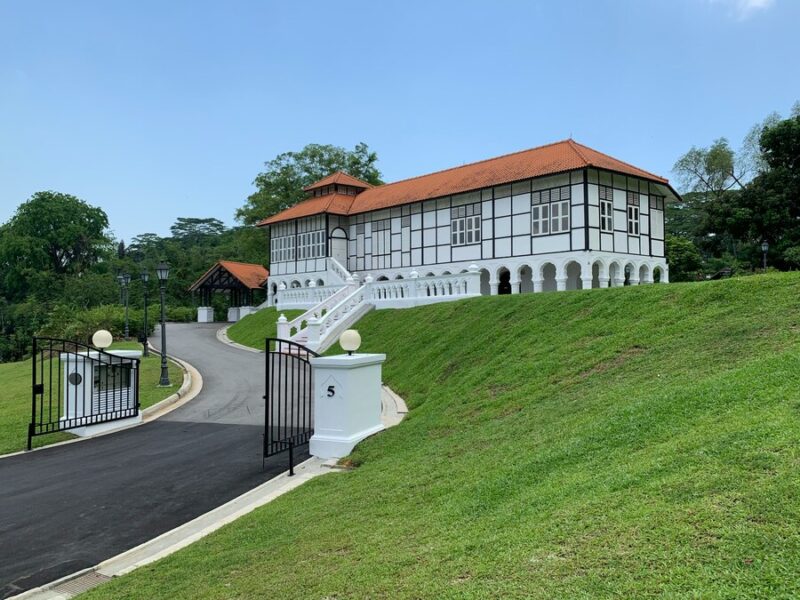Navigating the intricate landscape of real estate in Singapore can be both thrilling and daunting. As one of Asias most vibrant and rapidly evolving cities, the market here offers a cornucopia of opportunities, but also comes with its fair share of challenges.
From discerning the type of property that best suits your lifestyle to understanding the financial implications of such a significant investment, buying a house in Singapore is no small feat. This comprehensive guide is designed to illuminate the key requirements for potential homeowners—whether you are a first-time buyer or looking to expand your property portfolio.
Join us as we unravel the essential steps, legal considerations, and financial prerequisites that will pave the way for your journey to homeownership in this dynamic urban landscape.
Financial Considerations

Financial considerations play a pivotal role in the journey of purchasing a home in Singapore, an endeavor that demands meticulous planning and diligent budgeting. First and foremost, potential buyers must grasp the importance of the Minimum Cash Downpayment; for most properties, this amounts to at least 5% for first-time buyers. However, the financial landscape extends beyond just the initial payment; one must account for stamp duty and other fees that can add a substantial burden to the overall costs.
Additionally, engaging a mortgage can be a double-edged sword; while it allows for greater purchasing power, the responsibility of monthly repayments can strain finances if not carefully managed. It’s essential to consult with financial advisors or banking institutions to grasp one’s borrowing capacity and navigate the complex array of available loan options.
Ultimately, understanding these financial intricacies is not just about crunching numbers—its about ensuring that your dream home doesnt become a financial albatross.
Legal Requirements
When considering the legal requirements to buy a house in Singapore, it’s essential to navigate a landscape defined by regulations and eligibility criteria. First and foremost, foreign buyers must adhere to specific stipulations that dictate their ownership rights—typically requiring them to obtain approval from the Singaporean government, especially for landed properties.
Additionally, Singapore citizens and permanent residents enjoy streamlined processes, having access to various types of properties without the steep foreign buyers additional stamp duty. Buyers should also be aware of the financial prerequisites, including the need for a minimum cash down payment and the completion of relevant documentation such as the Sale and Purchase Agreement.
As you embark on this journey, ensure you familiarize yourself with the Housing and Development Board (HDB) regulations if youre considering public housing, as they impose distinct criteria for eligibility and resale. Ultimately, understanding these legal frameworks will empower you to make informed decisions and navigate the home-buying process in this vibrant city-state.
Government Regulations and Schemes

When contemplating the purchase of a house in Singapore, one must navigate a complex landscape of government regulations and schemes designed to facilitate homeownership while ensuring market stability. The Housing & Development Board (HDB) plays a pivotal role, particularly for first-time buyers; it offers various grants and subsidies that can significantly reduce the financial burden.
Additionally, eligibility for these schemes often hinges on factors such as residency status, income ceiling, and family nucleus types. For instance, citizens may tap into the Additional CPF Housing Grant (AHG) and the Special CPF Housing Grant (SHG) if they meet specific criteria, which can yield substantial financial aid.
Moreover, the prevailing cooling measures aimed at tempering the property market can also affect your buying power, with factors such as Loan-to-Value (LTV) limits and Additional Buyer’s Stamp Duty (ABSD) coming into play. All these regulations and schemes create a dynamic framework where potential homeowners must remain vigilant and well-informed to make the most of their opportunities.
Conclusion
In conclusion, purchasing a house in Singapore, such as those found in the serene river green development, involves a comprehensive understanding of the key requirements and regulations. From financial preparedness and eligibility criteria to navigating the complexities of loan applications and property laws, prospective buyers must be well-informed to make sound decisions.
By familiarizing themselves with the necessary steps and seeking guidance when needed, homebuyers can confidently embark on the journey of owning a property in this vibrant city-state. Ultimately, with the right knowledge and resources, the dream of homeownership in Singapore can become a reality.


